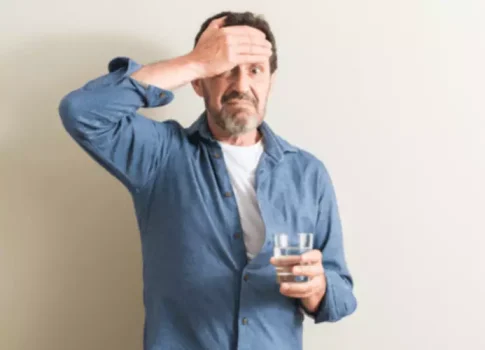
It’s also good to know the difference between alcohol poisoning and hangovers, though alcohol poisoning symptoms usually show up while you’re drinking, not the day after. If you’re not feeling any better after 24 hours, it’s best to check in with your healthcare provider. There’s evidence that reduced sleep after drinking leads to more severe hangovers. Do you feel like a hangover lasts a lot longer now that you’re older? You might not have been affected when you were a teenager, but as you get older that changes.
- As your body readjusts to the lack of alcohol, you start to feel better.
- In addition, it has also never been shown in a study that age affects the severity of hangovers.
- The single best prevention against the development of a hangover is to abstain from drinking completely.
- It’s also good to know the difference between alcohol poisoning and hangovers, though alcohol poisoning symptoms usually show up while you’re drinking, not the day after.
- If hangovers begin to interfere with daily life, or if there are signs of alcohol use disorder or alcohol poisoning, it’s essential to seek help.
- This phase is often the most uncomfortable and can last several hours.
What are the Symptoms of a Hangover?
Hangovers begin when a person’s blood alcohol level drops several hours after they stop drinking. The regular symptoms of a hangover are bad enough, but have you ever experienced uneasiness or panicking after drinking? This is known as hangover anxiety and it’s more common than you may think.
Medication-Assisted Treatment (MAT)
Drinking alcohol has a diuretic effect that makes you go to the bathroom more often. Even though you’re drinking, you could still get dehydrated if https://ecosoberhouse.com/ you aren’t also drinking water. However, don’t drink too much water as it may mix with the alcohol and make you vomit. A good rule of thumb is, one glass of water for three glasses of alcohol.
- A hangover begins when a person’s blood alcohol level begins to drop.
- In one study, researchers found that about 75% of people who drank excessively the night before reported hangover symptoms.
- Inpatient treatment programs provide intensive therapy and medical care in a residential setting.
- They usually start several hours after drinking and can last up to 24 hours.
- You might not have been affected when you were a teenager, but as you get older that changes.
Tips For Next Time
- Hangovers are usually experienced the morning after a night of heavy drinking since you are not conscious of the hangover during sleep.
- A hangover is usually first apparent when the blood alcohol level begins to fall and peaks in severity once the level is 0 and all the alcohol has been metabolized.
- There’s evidence that reduced sleep after drinking leads to more severe hangovers.
- Many remedies are available that claim to cure a hangover, but there is no scientific evidence any of them work.
- A person can limit the risk of a hangover by drinking plenty of water alongside any alcoholic beverages, or eating a meal after drinking alcohol.
But Sobriety it can cause inflammation in organs, leading to uncomfortable symptoms. This means it is difficult to predict the number of drinks or the amount of alcohol that will cause a hangover. However, generally, if a person drinks enough to feel intoxicated, they have a greater chance of experiencing a hangover. Hangovers are the body’s way of telling you it’s struggling to recover from alcohol consumption.

More on Coastal Wine Trail

This is because your body’s ability to process toxins decreases. The older you get, the more your body will be affected by the alcohol. 24 hours can feel like an eternity when you’re dealing with the symptoms.
When should I see a healthcare provider?

Severe hangovers can lead to dehydration symptoms, upset stomach, and even low body temperature. Recognizing the symptoms and knowing how to reduce nausea, stop drinking early, and manage hangover cures like drinking water or fruit juice can make a significant difference. If hangovers begin to interfere with daily life, or if there are signs of alcohol use disorder or alcohol poisoning, it’s essential to seek help. A hangover is a collection of unpleasant symptoms that occur after consuming excessive amounts of alcohol.

Tips for next time

We provide reliable, fact-based content about behavioral health conditions, treatment options, and what to expect during the recovery process. Our materials are thoroughly researched and reviewed by licensed medical professionals to ensure accuracy how long does a mild hangover last and trustworthiness. While our content is a valuable resource, it’s important to remember that it is not a replacement for professional medical advice. Always consult with a qualified healthcare provider for personalized guidance and treatment. A hangover is usually caused by excessive drinking (drinking to intoxication). The typical course of a hangover is that it begins after the symptoms of intoxication have worn off.
